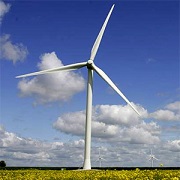Renewable Energy and the Environment
Renewable Energy and the Environment
The ERI is located close to many of Scotland’s outstanding wind, wave and tidal energy resources, notably the Pentland Firth – the foremost tidal resource in the UK. SRenewableEnergyustainable use of these resources may play a key role in achieving the Scottish Government’s ambitious renewable energy and carbon emission targets.
The ERI seeks to capitalise on our multi-disciplinary expertise to address environmental uncertainties and issues underpinning development of the renewable energy sector. We will do so by actively seeking and developing effective collaborations and partnerships, including those with our UHI partners, within regional, national and international settings.
Our team exploit distinctive blends of in-situ-monitoring, environmental survey, experimental, modelling and remote-sensing approaches to gain new insights that are relevant not only to renewable energy, but also to ecosystem functioning and anthropogenic impacts more generally within the fields of marine biology, behavioural ecology and oceanography.
As well as developing and disseminating environmental knowledge, we also aim to promote understanding of closely coupled social and economic issues relating to redevelopment of the region including the relationship to other key interests including fishing, angling and tourism. This will assist in establishing sustainable industries sympathetic to the region’s environments, communities and economies.
While marine renewable energy constitutes a main area of specialisation, we also recognise that our knowledge base and capacities are relevant to sectors such as oil and gas, and aquaculture. We will explore the potential in the adjacent sectors on an opportunistic basis.
Research Priorities
Marine energy resource assessment – field, modelling and remote sensing approaches to advance understanding of wave and tidal energy resources (temporally and spatially)
Bio-physical interactions – understanding biological and ecological responses to changes in the physical environment (including those resulting from energy extraction
Movement ecology – understanding the behavioural ecology of key species using techniques such as telemetry
Novel technology innovation – development and application of novel approaches to gaining new environmental insight
Energy, environment and socio-economics – incorporating new environmental understanding into integrated socio-economic models and approaches at community, local and regional scales
